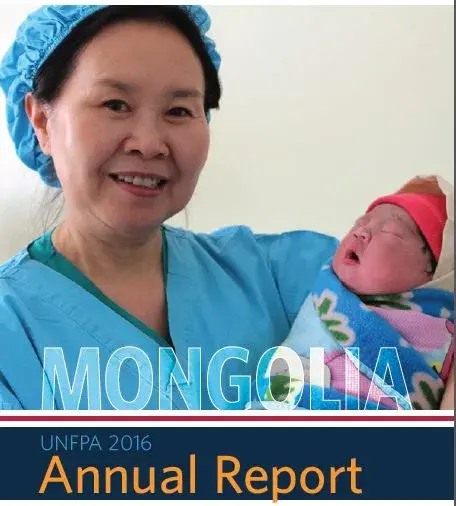No. of pages : 30
Publication date : 08/06/2017
Author : UNFPA Mongolia

UNFPA Mongolia 2016 Annual Report
No. of pages : 30
Publication date : 08/06/2017
Author : UNFPA Mongolia

UNFPA Mongolia 2016 Annual Report
The United Nations Population Fund (UNFPA), is the United Nations' sexual and reproductive health agency for delivering a world where every pregnancy is wanted, every childbirth is safe and every young person's potential is fulfilled. UNFPA has been working in partnership with the Government of the People’s Republic of Bangladesh since 1974, providing technical and advisory services and support. Our main partners are various Government Ministries, the Parliament, United Nations Agencies, academic institutions, and civil society organizations.
He should have a back like a tiger and a waist like a bear.
He does not shed tears until his heart is broken.
He stands firm amid adversities.
On the subject of a good woman, more hands shot up.
She should behave in a sweet and helpless way.
She should be caring and affectionate.
ZHOUSHAN, Henan, China- After suffering pressure from her husband and father-in-law, Qiaofang eventually managed to have a son. The young mother already had two beautiful girls, but in China a combination of strong traditional values and community laws can influence families and women to do almost anything to have a son.
No. of pages : 12
Publication date : 01/01/2007
Author : UNFPA
The demographic structure of population, particularly age and sex, has profound consequences for harmonious and sustainable social and economic development. Furthermore, analyzing sex ratios of population is important in analyzing the status of women and girls.
No. of pages : 40
Publication date : 01/12/2012
Author : UNFPA
This glossary is designed as a tool to enable a consistent and proper use
of key terms on gender programming by UNFPA colleagues, translators,
partners and researchers working on the issues. The three key areas of
the UNFPA mandate are sexual and reproductive health, gender equality
and population and development strategies.
No. of pages : 18
Publication date : 01/01/2013
Author : Guilmoto
Imbalanced SRB in China has grown continuously over the past 30 years, from 107.6 male live births per 100 females in 1982 to 120.5 in 2005, with a slight drop in 2010 to 117.948 . The SRB in rural areas is significantly higher than that in urban areas. In rural areas, SRB reached 122.9 in 2005 and 122.19 in 2010. SRB is also rising rapidly in urban areas from 109.9 in 1990 to 117.1 in 2005 and even to 120.210 in 2010.
No. of pages : 12
Publisher : UNFPA WCARO
Publication date : 02/01/2017
Author : UNFPA WCARO
The message is clear.
We must put young people first if we are to harness the demographic dividend, build resilience and transform our region to achieve the Sustainable Development Goals and the Africa We Want.
Having helped secure political will in 2016, UNFPA in WCAR intends to secure resources, advance partnerships and fully promote, support and implement interventions that put young people first in 2017 and the years ahead.
No. of pages : 16
Publication date : 17/12/2016
Author : UNFPA Nepal

Established in 1971 in Nepal, UNFPA has been working with the Government of Nepal, development partners, parliamentarians, civil society, young people and other stakeholders to promote sexual and reproductive health and rights for all, ensure that no woman dies giving life and enable marginalized, poor and hard-to-reach people to live in dignity and enjoy their human rights.
No. of pages : 92
Publisher : Stree Shakti-The Parallel Force
Publication date : 20/11/2016
Author : Stree Shakti-The Parallel Force
